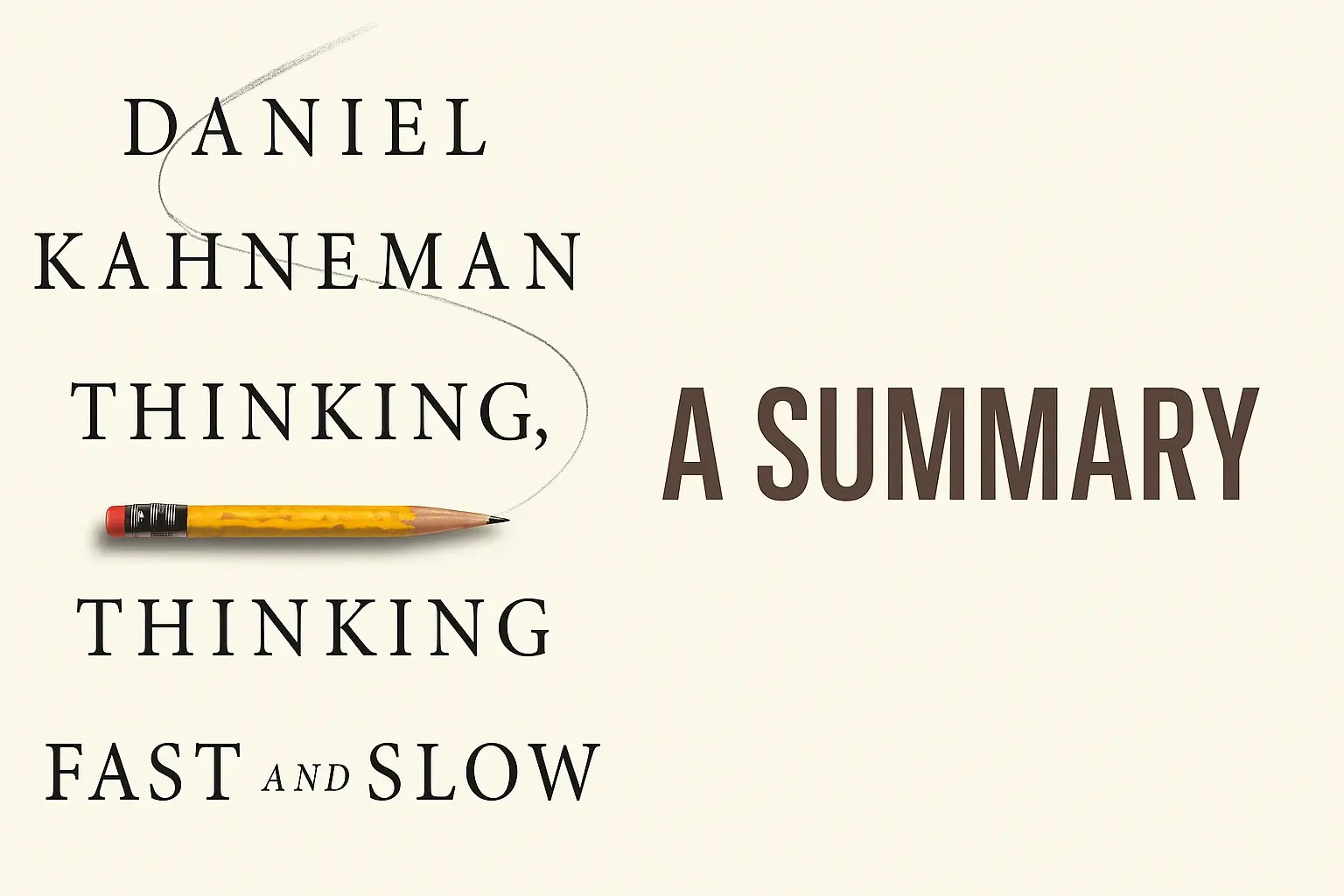Introduction: Daniel Kahneman’s Thinking, Fast and Slow isn’t just a psychology book—it’s a mirror reflecting how we really think. A Nobel laureate in Economics, Kahneman challenges us: we aren’t rational robots. Instead, under the hood of our minds are two systems—one built for speed and intuition, the other for deliberation and logic. This post unpacks those systems, exposes our invisible biases, and offers practical steps to make smarter, more mindful decisions.
System 1 vs. System 2: The Engines of Thought
System 1 is fast, emotional, and automatic. It’s your gut reaction to a friend’s angry tone or recalling your phone number.
System 2 is slow, logical, and effortful. It kicks in when you solve complex math or decide whether to sign a contract.
Kahneman shows us that these two systems are like drivers in the same car—and often, the fast one takes the wheel, even when we should slow down and think.
Heuristics & Biases – How Our Minds Shortcut
- Anchoring: The first number you hear influences your perception (e.g., car pricing).
- Availability: You overestimate likelihood based on recent memory (e.g., fear of flying).
- Representativeness: You judge based on similarity, not probability (e.g., Linda the feminist bank teller).
- Base-rate neglect: Ignoring statistics in favor of specifics.
- Conjunction fallacy: Thinking two events together are more likely than one.
- Law of small numbers: Generalizing from small data samples.
Overconfidence – The Illusion of Knowing
Kahneman shows we often:
- Overestimate our knowledge
- Underestimate chance
- Trust hindsight as foresight
Even experts fall in love with their narratives. Kahneman reminds us: knowing is often guessing in disguise.
Choices & Prospect Theory – Gains, Losses, and Feeling the Sting
Humans aren’t logical calculators. We:
- Prefer the status quo
- Fear losses more than enjoy gains
- React differently to how outcomes are framed
This explains risk aversion, bad investment choices, and poor negotiations. Kahneman’s Prospect Theory reframes how we view decisions.
Two Selves – The Remembering and Experiencing You
The Experiencing Self lives in the moment. The Remembering Self tells your life story. They don’t always agree.
That’s why a difficult vacation with a great ending feels better in hindsight than a consistent but boring trip. It’s your Remembering Self that books the next trip.
Key Takeaways & Real-Life Applications
- Pause before decisions—let System 2 think.
- Use checklists to reduce bias.
- Frame data mindfully.
- Rely on statistics, not stories.
- Plan for emotional reactions to losses.
- Design experiences for your Remembering Self.
Personal Story
I once ignored a friend’s business advice because I “just felt it wouldn’t work.” My intuition (System 1) shouted louder than logic. Months later, I realized I had fallen for the same biases Kahneman warns about—anchoring to a single example, ignoring data, and misjudging risk. That moment turned me into a slow thinker.
Why This Book Matters Today
In the age of tweets, swipes, and hot takes, Thinking, Fast and Slow is a manual for mindfulness. Kahneman arms us with tools to:
- Make smarter choices
- Notice mental traps
- Improve work, relationships, and leadership
He reminds us: everyone’s brain has bugs. Knowing the bugs is the first step to debugging life.
Further Reading & Resources
- Noise – Kahneman’s follow-up on judgment errors
- Nudge by Thaler & Sunstein
- Predictably Irrational by Dan Ariely
- Related TED Talks and behavioral economics interviews
Join the Conversation
Which bias surprised you most? Have you caught yourself fast-thinking in the wrong moment? Share your story below—we’d love to hear how Kahneman’s ideas resonate with you.
Leave a comment
Your email address will not be published. Required fields are marked *















-150x150.webp)
